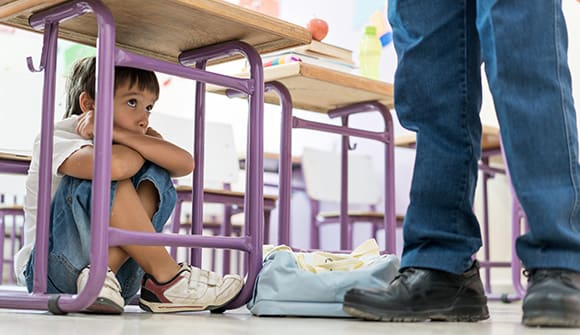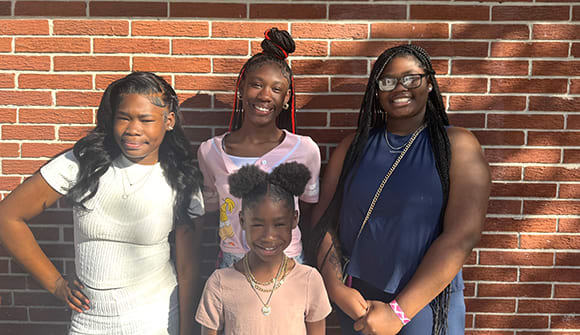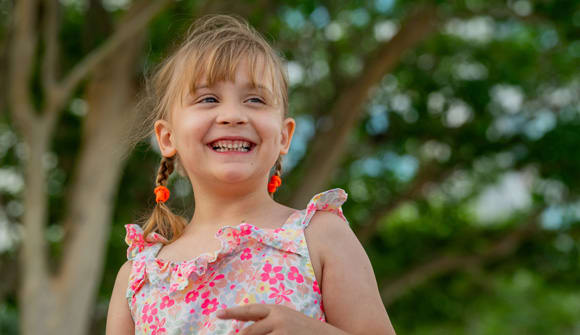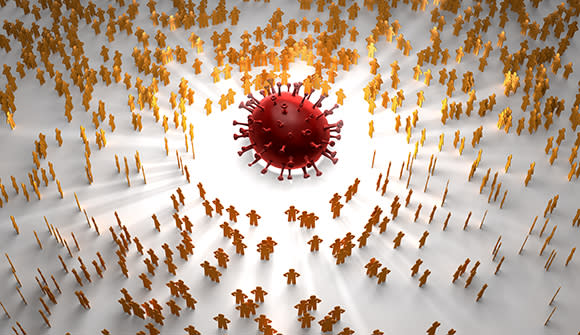‘Code Red’ generation
How children cope in a world that prepares them for school shootings.
Article Author: Guest Columnist
Article Date:

Our guest columnist is Jennifer Arevalo, LCSW, behavioral health prevention coordinator for THE PLAYERS Center for Child Health at Wolfson Children’s Hospital.
For decades, parents could drop their child off at school or watch their little one walk onto the school bus without a single doubt that the child would be home for dinner later that day. Over the last 25 years, school shootings across the United States have fractured our belief that schools are safe for our children. The tragedies at Columbine, Sandy Hook, Uvalde and many other schools collectively represent a parent's worst nightmare.
According to an article from the American Academy of Pediatrics, there were 1,453 school shootings from 1997 to 2022. The most recent five school years reflected a substantially higher number of school shootings than the prior 20. While these statistics are jarring, the overall likelihood of a school shooting is low.
Still, in the wake of tragedy, intense emotions and media coverage often make these horrific events feel more probable, and schools are preparing for the worst-case scenario.
The impact of school safety drills
Lockdown and active-shooter drills have become a routine part of safety and crisis prevention in our schools. According to a study by the U.S. Department of Education, active shooter drills are implemented in over 95% of American K-12 schools today. These practices provide students, teachers and support staff with specific steps to follow to minimize casualties and injuries in the event of an active shooter or other incident that could place students in harm's way.
Though research is divided on the benefits versus potential psychological harm of active shooter drills, there are some recommendations for schools that do implement them:
- Drills should not include simulations that mimic an actual incident.
- Parents should have advanced notice of drills.
- Drills should be announced to students and educators prior to the start.
- Schools should create age- and developmentally appropriate education about the drill with input from school-based mental health professionals, including trauma-informed approaches to address students’ wellbeing during and after the event.
- Schools should track data about the mental health effects of drills.
Talking to younger children about safety drills
Although these drills have become routine for older students, younger children may not entirely understand the purpose.
Some little ones may come home after a drill and have questions or worries. As parents and caregivers, try not to avoid these topics or minimize the impact that drills have on a child’s sense of safety. The best thing to do is to validate the child’s experience while providing reassurance that they are safe at school. It may be helpful to liken lockdown and active shooter drills to fire drills. A parent or caregiver could say, “A fire probably won’t happen, but practicing will help us remember what to do if it does.”
Providing reassurance related to safety, using age-appropriate language and avoiding graphic detail, will help children understand the purpose of the drills while minimizing worries. It’s also important to ask your child what questions they may have during this process.
‘I’m afraid to go to school’
Middle and high school students have greater access to media and therefore process news events in real time. A recent school shooting in the media, combined with copycat threats at local schools, can create legitimate fears about attending. Asking your child about their specific concerns can be more effective than assuming you know what they’re worried about. Validating their thoughts and emotions can help them feel heard and understood, and provide reassurance that you’re taking their concerns seriously.
Parents can encourage their teens to identify choices or actions that are within their control to decrease anxiety. This may include limiting news and media coverage, talking to a close friend or school counselor about how they’re feeling, being attentive and following instructions during drills, or speaking directly with school officials about concerns. For some teens, understanding the low statistical probability of a school shooting may be helpful, but for others, it may not.
Signs your child may be struggling
Changes in the three categories below could signal that your child is struggling with stress or anxiety from lockdown drills or something else:
- Behavior: Loss of desire to be with friends, play sports or participate in activities he or she once enjoyed.
- Appetite: Eating more or less than usual.
- Sleep habits: Disrupted sleep or new bedwetting.
If you see any of these behaviors in your child, consider approaching him or her with a casual, open-ended question like, “I noticed this is happening. How are you feeling about that?” If the child rebukes your effort or if the changes are impacting your child’s quality of life, you may want to seek the help of a child behavioral health professional.
Is your child struggling with anxiety related to current events or lockdown drills at school?
Common Thread by Wolfson Children’s has tools to support children’s mental health and help kids and teens navigate challenges with confidence and care. To learn more, visit wolfsonchildrens.com/commonthread. Parents and children can also reach immediate support through the Wolfson Children’s 24/7 Kids & Teens Helpline at 904.202.7900 or by texting LIFE to 741741. To schedule an appointment with Wolfson Children’s Behavioral Health, call 904.376.3800.
References: American Academy of Pediatrics



